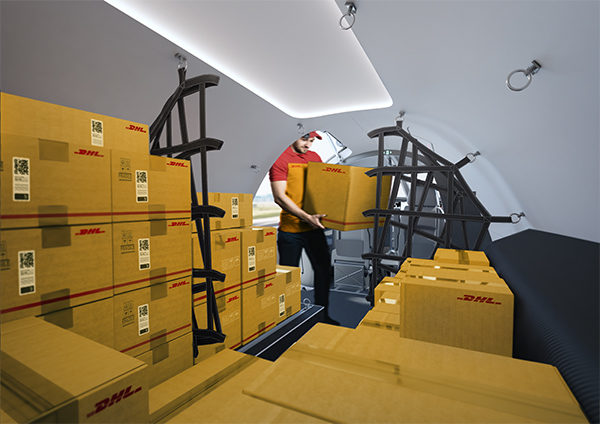DHL orders 12 electric cargo planes
Battery-powered “Alice” aircraft can transport 2,600 pounds of cargo up to 440 nautical miles, carrier says.

E-commerce provided a lifeline for both consumers and retailers during the pandemic lockdowns, but the resulting explosion in home deliveries has had an unfortunate side effect: increased pollution.
DHL Express now says it can slash emissions by using electric cargo planes instead of fossil fuel-burning jets. The company recently announced that it had ordered 12 battery-powered Alice cargo planes from Arlington, Washington-based aircraft maker Eviation, with the first deliveries expected in 2024.
The German parcel delivery giant says it intends to deploy the Alice planes for feeder routes in its express network. With a 30-minute recharging time, the plane can easily be “refueled” while loading and unloading operations take place, ensuring the quick turnaround times needed to maintain DHL Express’s tight schedules, the company said in a release. The new aircraft will be targeted for operations in the U.S. Southeast and on the West Coast.
Each Alice aircraft can be flown by a single pilot and will carry 2,600 pounds of cargo for a maximum range of 440 nautical miles, according to the DHL. The company adds that the electric planes will operate in all environments currently served by standard piston-and-turbine aircraft but will reduce maintenance costs because electric motors have fewer moving parts.Related Articles
Copyright ©2024. All Rights ReservedDesign, CMS, Hosting & Web Development :: ePublishing